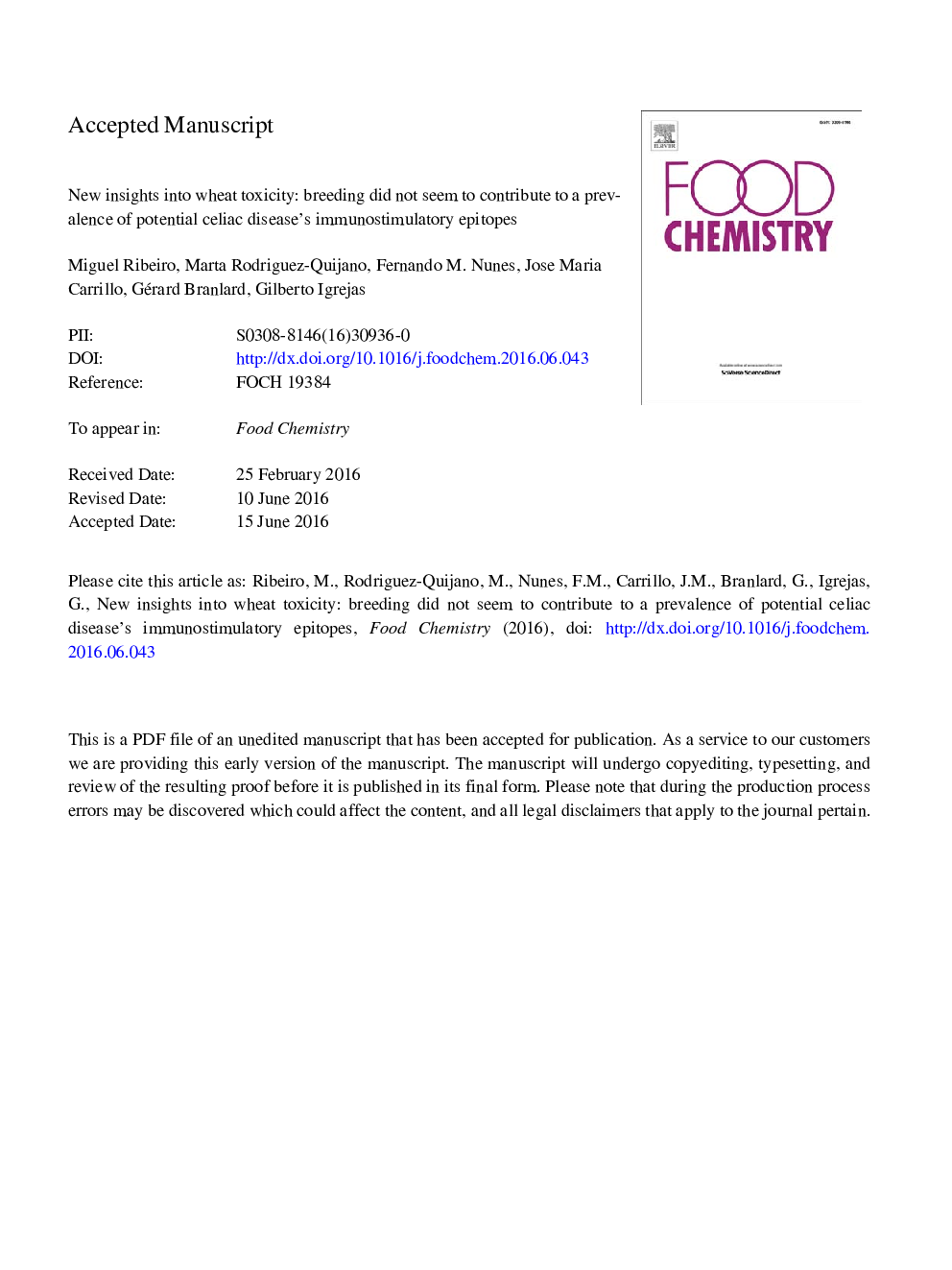| Article ID | Journal | Published Year | Pages | File Type |
|---|---|---|---|---|
| 7587114 | Food Chemistry | 2016 | 37 Pages |
Abstract
Gluten proteins, namely gliadins, are the primary trigger of the abnormal immune response in celiac disease. It has been hypothesised that modern wheat breeding practices may have contributed to the increase in celiac disease prevalence during the latter half of the 20th century. Our results do not support this hypothesis as Triticum aestivum spp. vulgare landraces, which were not subjected to breeding practices, presented higher amounts of potential celiac disease's immunostimulatory epitopes when compared to modern varieties. Furthermore, high variation between wheat varieties concerning the toxic epitopes amount was observed. We carried out quantitative analysis of gliadin types by RP-HPLC to verify its correlation with the amount of toxic epitopes: Ï-type gliadins content explain about 40% of the variation of toxic epitopes in tetraploid wheat varieties. This research provides new insights regarding wheat toxicity and into the controversial idea that human practices may have conducted to an increased exposure to toxic epitopes.
Keywords
Related Topics
Physical Sciences and Engineering
Chemistry
Analytical Chemistry
Authors
Miguel Ribeiro, Marta Rodriguez-Quijano, Fernando M. Nunes, Jose Maria Carrillo, Gérard Branlard, Gilberto Igrejas,
